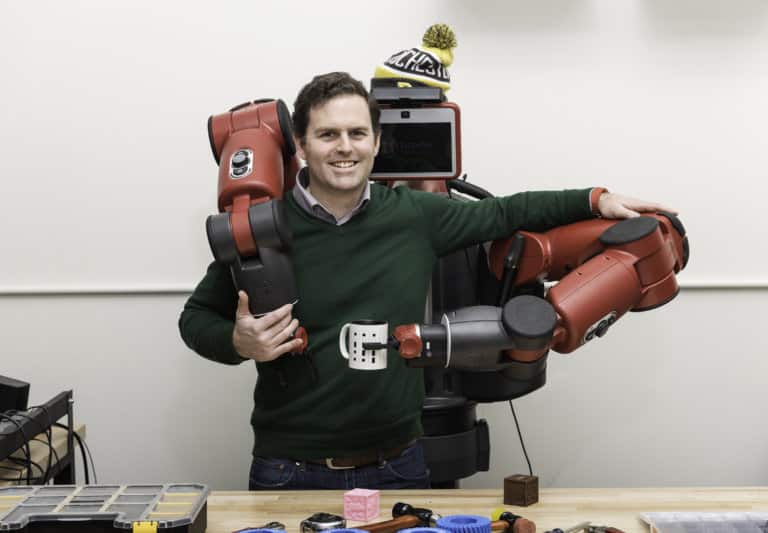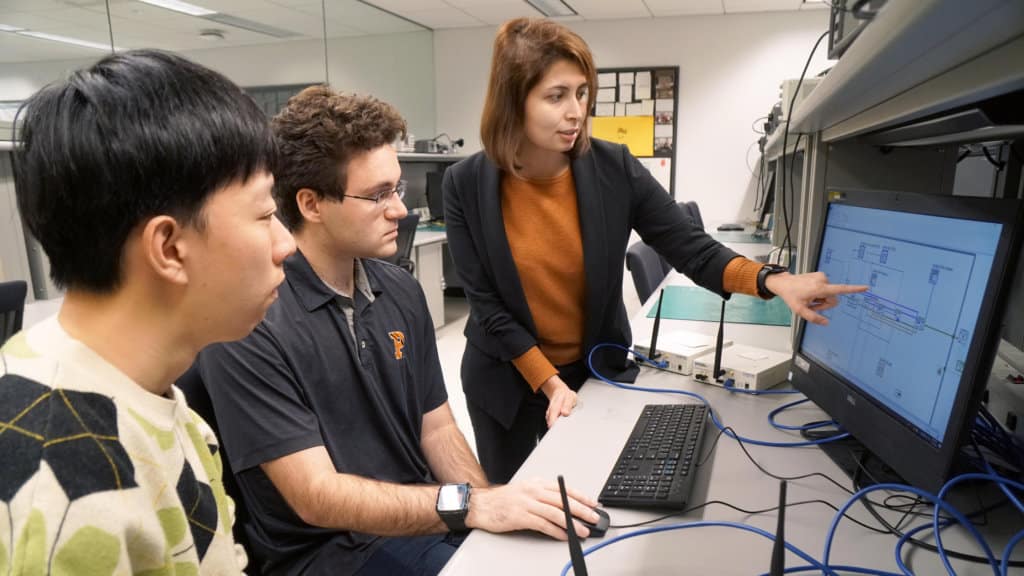
From our smartphones to our smart homes, electrical and computer engineering influence almost every aspect of our lives. This specialised branch deals with systems, devices, coding, and equipment – fusing two fields to meet the demands of the electronic industry today.
Multidisciplinary and relevant, a degree in this field can power up great career opportunities in the future. You’re set to earn a versatile skillset that would qualify for many roles in telecommunications, automotive, IT, gaming, electronics, manufacturing, utilities and construction.
While many universities offer degrees in engineering today, some stand out and can provide students with exactly what they need to take on the challenges and realise the potential of this field.
Here are three US universities that offer electrical and computer engineering degrees for you to consider.
University of Rochester Electrical and Computer Engineering

The faculty has 22 full-time members to support its growing research and educational programs in multiple areas. Source: University of Rochester
The Department of Electrical and Computer Engineering (ECE) is home to many experts exploring cutting-edge solutions in this field. Their research areas include Robotics, Signal Processing, Ultrasound Imaging, Image Processing, Circuits and Computer Systems, Nanoscale Electronics and Photonics, Medical Imaging, and Quantum Engineering.
Their real-world experience and research experience elevate an ECE education here — preparing students to tackle complex technological challenges in their future careers. The department offers the Phd and MS Electrical Engineering, and MS Diagnostic Imaging (the first-of-its-kind program in the country) — all of which offer support and guidance from start to end. Classes are kept small for better interaction and mentoring; the largest class size here is only 40 students.
Close links with the Department of Imaging Sciences at the University of Rochester Medical Centre let students explore beyond their discipline. For example, MS Diagnostic Imaging brings engineering students and medical residents to work and learn together. It aligns imaging fundamentals from engineering with radiological applications observed in an immersive clinical environment. Close by are The Laboratory for Laser Energetics (LLE) and The Institute of Optics, the Goergen Institute for Data Science and Strong Memorial Hospital — offering more opportunities for multidisciplinary learning and research.
The result? Graduates with in-demand technical and professional skills are ready to make their mark in companies like Bose, Harman, Google, Apple, IBM, Siemens, GM, Microsoft, Intel, and more, like the students before them.
University of California, Berkeley

Graduates from University of California, Berkeley are a close-knit community that support each other. Source: UC Berkeley photos by Keegan Houser (Facebook)
Ranked among the top three engineering schools in the world, offering a dynamic, interdisciplinary, hands-on education, UC Berkeley is the place to be. “Engineering drives innovation that shapes our future. At Berkeley, we work together to ensure that it will be right for all,” says Dean Tsu-Jae King Liu.
Programmes here are designed with insights from the university’s industry partners to address the needs of engineers. From programmes in bioengineering to nuclear technologies, Berkeley Engineering offers innovative, impactful ways to change the world.
Its Department of Electrical Engineering and Computer Sciences (EECS) stands out for its innovation and ability to prepare students for the workforce. Programmes here have some of the world’s strongest research and instruction. Its MSc in Electrical Engineering covers topics like integrated circuits, signal processing, micro/nano electromechanical systems and more — all of which come alive through an array of cross-disciplinary, team-driven projects.
“It is one of the most prestigious, not only as an EECS department in a public university, but ranked globally among all EE and CS departments. Berkeley EECS continues to be the home of historic contributions to the fields of electrical engineering and computer sciences,” says Claire Tomlin, Chair of the Department of Electrical Engineering and Computer Sciences.
“Our world-class faculty includes both those who have been long recognized for their contributions to research and education and many newer faculty who are just starting to gain wide recognition for their work.”
The University of Texas at Austin

The University of Texas at Austin is a leading public research university, home to more than 51,000 students. Source: The University of Texas at Austin/Facebook
Right in the heart of Austin sits the University of Texas. It is the largest and most comprehensive university in North Texas and offers an array of undergraduate and postgraduate programmes in engineering.
The Chandra Family Department of Electrical and Computer Engineering is the university’s most prominent department within the Cockrell School of Engineering. Home to more than 2,500 students and 80 faculty, the department is renowned for its state-of-the-art research, development and design experience.
The four-semester MS in Engineering degree has eight academic tracks: Architecture, Computer Systems, and Embedded Systems (ACSES); bioECE; Decision, Information, and Communications Engineering (DICE); Electromagnetics & Acoustics (EA); Electronics, Photonics and Quantum Systems (EPQS); Integrated Circuits & Systems (ICS); Power Electronics and Power Systems (PEPS) and Software Engineering and Systems (SES). Students can make full use fo the various resources and interdisciplinary work at UT Austin as well.
Upon completion, they can progress to the PhD — a route that’s led Yifan Jiang to become a recipient of a 2023 Apple Scholars in AI/ML PhD fellowship. He will receive funding as he pursues his PhD, internship opportunities, and mentorship with an Apple researcher in their field.
*Some of the institutions featured in this article are commercial partners of Study International







